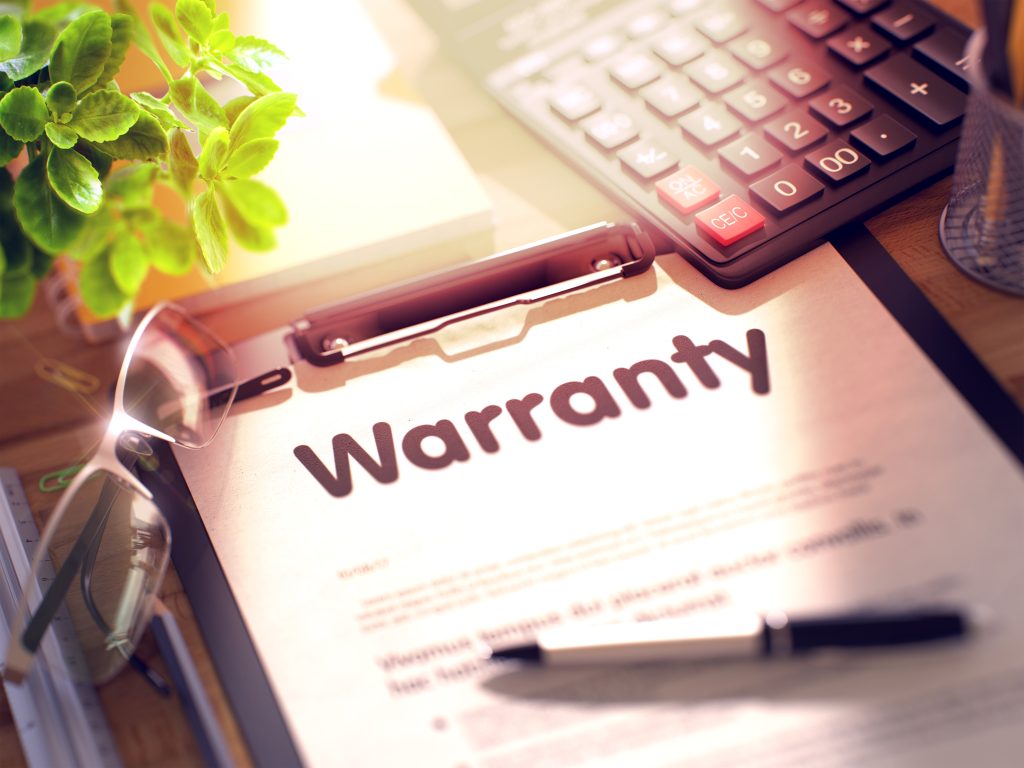What Does An Extended Car Warranty Cost?
Understanding Extended Car Warranties
Extended car warranties are optional protection plans that cover auto repair costs associated with mechanical breakdowns. These plans, also known as vehicle service contracts, can help to extend your factory warranty protection once it’s expired.
Factory Warranty Coverage
A factory warranty comes with your new car as a guarantee that your car will work the way it’s intended to. If you suffer from any sort of mechanical failure during the limits of your factory warranty coverage, the manufacturer will repair it for free. Factory warranties come with both bumper-to-bumper and powertrain coverages in addition to corrosion, emissions, and other warranties.
Bumper-To-Bumper Coverage
Bumper-to-bumper warranties are the highest level of coverage available for your car. Also known as comprehensive or exclusionary coverage, most vehicle parts are covered except a short list of exclusions. This coverage often has the shortest period of your factory warranty, but longer terms can be purchased from extended warranty providers. Many automakers, like Chrysler, Honda, Chevrolet and Ford, offer this coverage for 3 years/36,000 miles.
Powertrain Coverage
Powertrain warranty coverage protects what keeps your car moving. Also called drivetrain warranties, this protection includes the engine, transmission, drive axles, and more. Powertrain extended warranties are often the lowest level of extended coverage offered.
Extended Car Warranty Quotes
Our research team collected quotes from a variety of providers for a 2022 Jeep Wrangler Unlimited Rubicon With 22,000 miles to get an idea of the different pricing. These quotes can very depending by many factors-
| Provider | Extended Car Warranty Plan | Term Length | Price | Total Cost |
|---|---|---|---|---|
| Endurance | Supreme | 5 years/100,000 miles | $126 for 30 months | $3,780 |
| Carchex | Titanium | 6 years/125,000 miles | $184 for 18 months | $3,312 |
| autopom! | Exclusionary | 5 years/75,000 miles | $145 for 36 months | $5,220 |
| CarShield | Diamond | Unlimited/month-to-month | $139.99 monthly | Varies |
| Mopar | Maximum Care | 7 years/100,000 miles | $117 for 24 months | $2,815 |
Disclaimer: These quotes can very depending by many factors – We do not make a claim of accuracy for any of these quotes for many legal reasons.
Consider An Official Mopar Extended Warranty from Chrysler-Factory-Warranty

In today’s fast-paced world, owning a car is more of a necessity than a luxury for many individuals. Whether it’s commuting to work, running errands, or embarking on road trips, having reliable transportation is crucial. However, with vehicle ownership comes the inevitable risk of unexpected repairs and maintenance costs. This is where extended car warranties come into play, offering an additional layer of financial protection beyond the manufacturer’s warranty.
Understanding Extended Car Warranties
Coverage Options and Levels
Extended car warranties, also known as vehicle service contracts, come in various coverage options and levels. At the most basic level, warranties may cover only essential components like the engine and transmission, commonly referred to as powertrain coverage. On the other end of the spectrum are comprehensive plans that offer bumper-to-bumper coverage, including electronics, luxury components, and more. The cost of an extended car warranty is heavily influenced by the extent of coverage you choose. While basic plans may be more affordable upfront, they may not provide adequate protection for all potential repair expenses.
Vehicle Age and Mileage
Another significant factor impacting the cost of an extended car warranty is the age and mileage of the vehicle. Older vehicles or those with higher mileage often require more extensive coverage due to the increased likelihood of mechanical failures and wear and tear. As a result, the cost of an extended warranty for these vehicles may be higher compared to newer or low-mileage vehicles.
Deductibles
Similar to insurance policies, extended car warranties typically come with deductibles. A deductible is the amount you must pay out of pocket before the warranty coverage kicks in. Choosing a higher deductible can lower the upfront cost of the warranty but may result in higher out-of-pocket expenses when making a claim. Conversely, opting for a lower deductible may increase the initial cost of the warranty but reduce the financial burden when repairs are needed.
Vehicle Make and Model
The make and model of your vehicle play a significant role in determining the cost of an extended car warranty. Luxury or high-performance vehicles often have higher repair costs due to the specialized parts and components they utilize. As a result, the cost of an extended warranty for these vehicles may be higher compared to more mainstream models. Additionally, certain vehicle manufacturers may offer their own extended warranty options, which could impact the overall cost and coverage terms.
Provider Reputation and Reliability
When considering an extended car warranty, it’s essential to research and choose a reputable provider. While some providers may offer lower prices, they may not have the financial stability or reputation for honoring claims. Opting for a well-established warranty provider with a track record of reliability can provide peace of mind knowing that your claims will be handled efficiently and fairly. Additionally, reputable providers often offer transparent terms and conditions, ensuring that you understand the extent of your coverage and any limitations. This is important in determining is an extended warranty worth it.
Additional Benefits
In addition to the core coverage options, some extended warranties come with added benefits such as roadside assistance, rental car reimbursement, or trip interruption coverage. While these benefits can enhance the overall value of the warranty, they also contribute to the overall cost. When comparing warranty options, consider whether these additional benefits align with your needs and if they justify the increased cost.

How To Get The Best Price On An Extended Warranty
Are you considering purchasing an extended warranty for your vehicle but want to ensure you’re getting the best deal possible? Here are some tips to help you secure the best price on an extended warranty:
1. Research Multiple Providers
Don’t settle for the first extended warranty provider you come across. Take the time to research and compare quotes from multiple providers. Look for reputable companies with positive customer reviews and a track record of honoring claims.
2. Understand Your Coverage Needs
Before shopping for an extended warranty, assess your coverage needs based on factors such as your vehicle’s make, model, age, and mileage. Determine which components you want covered and for how long. Having a clear understanding of your coverage needs will help you narrow down your options and avoid paying for unnecessary features.
3. Negotiate the Price:
Don’t be afraid to negotiate the price of the extended warranty. Many providers are willing to negotiate, especially if you’re purchasing additional coverage or have multiple vehicles to cover. Ask about available discounts or promotions and be prepared to walk away if you’re not satisfied with the initial offer.
4. Consider Deductibles:
Opting for a higher deductible can lower the cost of your extended warranty. However, be sure to weigh the potential savings against the out-of-pocket expenses you’ll incur when making a claim. Choose a deductible that strikes the right balance between affordability and financial protection.
5. Bundle with Other Services:
Some extended warranty providers offer discounts when you bundle your warranty with other services, such as maintenance plans or roadside assistance. Inquire about bundle deals to see if you can save money by combining multiple services into one package.
6. Avoid Add-Ons You Don’t Need:
Be cautious of add-on features and coverages that may not be necessary for your vehicle or driving habits. While additional benefits like rental car reimbursement or trip interruption coverage can be valuable, they also contribute to the overall cost of the warranty. Only opt for add-ons that align with your needs and budget.
7. Check for Manufacturer Warranties:
Before purchasing an extended warranty, check if your vehicle is still covered by the manufacturer’s warranty or if any extended coverage options are available directly from the manufacturer. Manufacturer-backed warranties may offer competitive pricing and comprehensive coverage, making them worth considering.
8. Review the Terms and Conditions:
Take the time to carefully review the terms and conditions of the extended warranty before committing to a purchase. Pay attention to coverage limitations, exclusions, and cancellation policies to ensure you fully understand your rights and obligations as a warranty holder.
By following these tips, you can increase your chances of securing the best price on an extended warranty that meets your coverage needs and budget requirements. Remember to do your research, negotiate the price, and only purchase the coverage options that are essential for your vehicle and driving lifestyle. With the right approach, you can enjoy peace of mind knowing that your vehicle is protected against unexpected repair expenses without breaking the bank.




